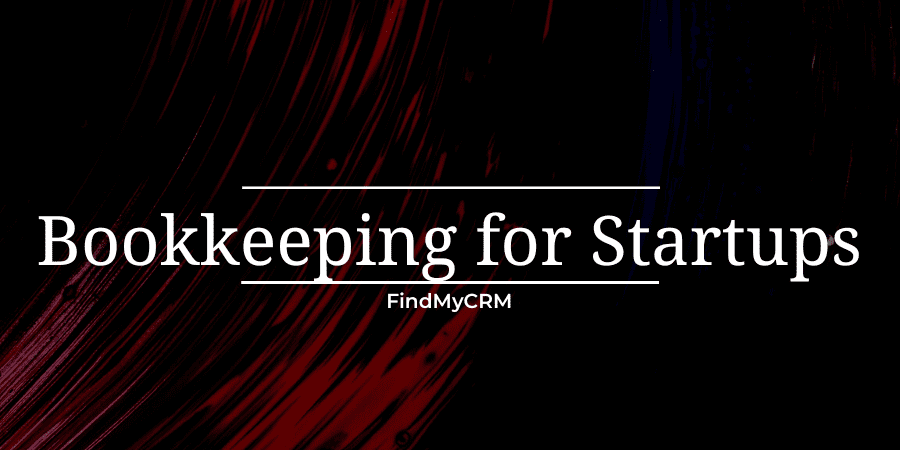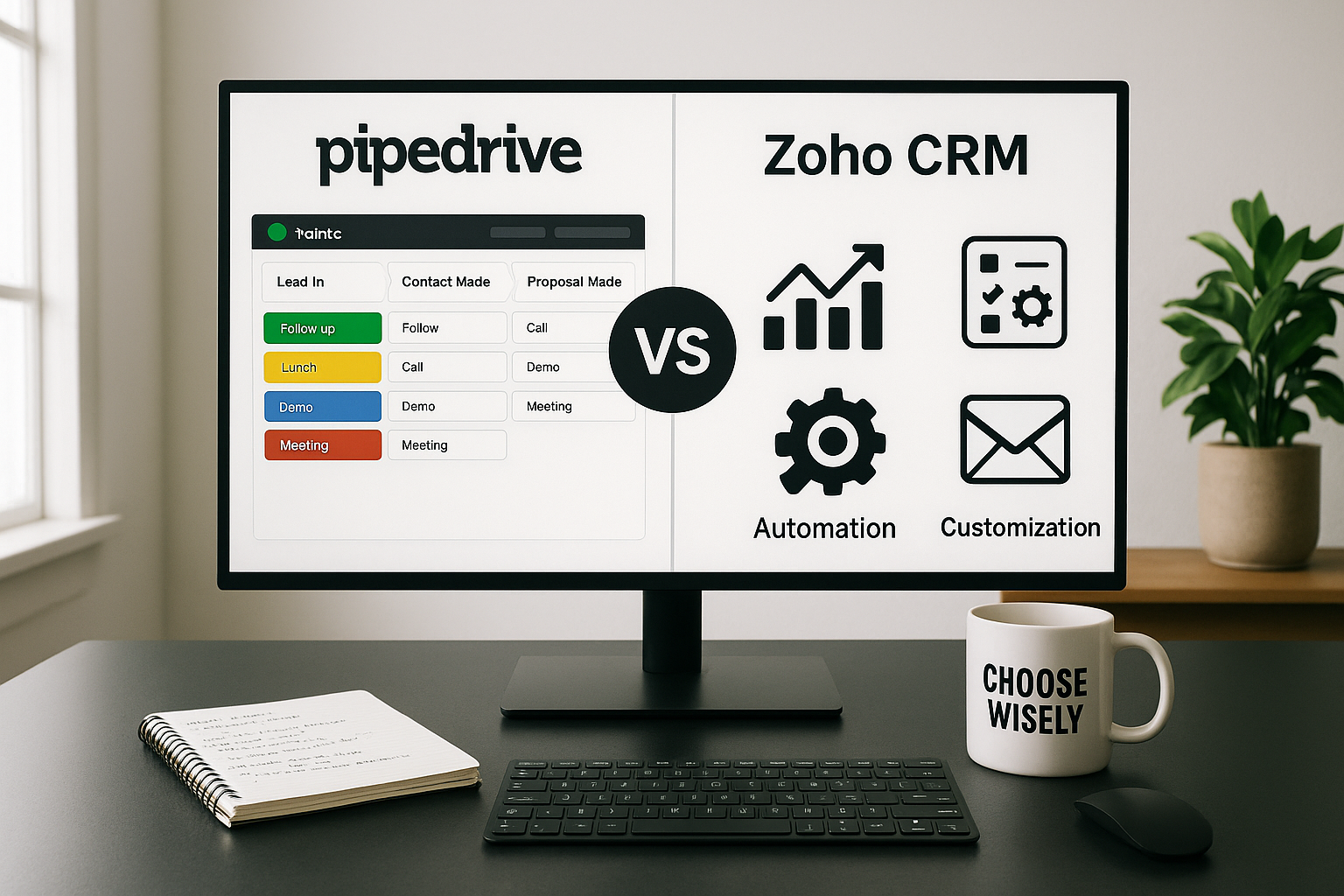Why is accounting essential for startup businesses?
Profit is the basis for running a business. Your startup's success depends on effective budget management, keeping a financial balance, and modifying financial strategies when it`s necessary. The stakeholders and business owners benefit from successful financial management and efficient financial accounting.
CRM systems also can help you with accounting activities. The most popular are:
Some of the main advantages of accounting for startups are as follows:
- Business owners may quickly and easily see where their company is and how it is going financially using an accounting process.
- Accounting allows startups to keep track of their debts and receivables for goods produced and services provided.
- Accounting also informs staff members of the company's strengths and weaknesses.
- Small business owners may use financial accounting data to evaluate investment opportunities and analyze rivals.
- It enables businesses to understand their past activity and where they are right now in order to plan for the future.
- Small-business and startup owners use financial accounting to communicate information externally to people and companies that use the financial info of a company, such as banks, the IRS, suppliers, creditors, future investors, and leasing companies.

What is the difference between accounting and bookkeeping?
Bookkeeping and accounting services are related, thus they seem identical. Nevertheless, there are differences between the two.
Accounting is the process of analyzing your financial records to help with everything from paying the right taxes to making strategic business decisions. The purpose of bookkeeping is to guarantee that the process of tracking all financial records is complete. A bookkeeper will mostly look at income and expenses.
No matter the size of your company, accounting and bookkeeping services are useful for all types of businesses. Your financial reports will be required when you look for investors to assist you in establishing and running your business. You can create these crucial reports with the assistance of a competent accountant. Great bookkeeping can ensure the data needed to create the reports is ready to use.
[Related Article: 7 Best Simple CRMs for 2023 - Easy & Basic CRMs]
What differentiates accounting for startups?
Startups resemble small businesses a lot when it comes to market share, sales, and staff numbers. Simply said, the numbers are small or even worse. A startup has bigger goals than a small business, even though they both operate on the same scale.
Because of this difference, startups and small businesses have very different administration and financing strategies.

Growth-oriented
Startups are created with quick growth in mind, in contrast to small businesses. As a result, a substantial percentage of their operational structure is designed to scale the business and its profits quickly. Startups want to develop into major corporations, go public, or get another outcome. Thus, compared to a small business in the same sector, startup accounting may be a little more difficult.
Because of this additional complexity, it's crucial to start with the right tools, including software and access to professionals. A startup, like other businesses, will need to manage internal data and workflows, almost to the same level of scrutiny that a big corporation would use - if you want to attract the level of investors who support that path.
For instance, a small business can manage its financial data using a straightforward accounting program like QuickBooks and its staff using a basic scheduling application like Homebase. More complex enterprise resource planning software such as Oracle Netsuite may even make sense for your company if you are in a specific industry and depending on where your ambitions take you.
Distributed teams
Distributed teams are also more common in startups than in other small businesses. Startups, unlike small businesses, rarely concentrate their marketing efforts on a particular region and are not restricted to a single location. As a result, many startups are realizing that keeping a headquarters is overhead they don't require, which makes them open to employees anywhere.
You will need to follow different tax and labor rules because your teams are located in various jurisdictions. Accounting management becomes complicated as your team and clientele spread across the country or world.
Sector-specific factors
Startups generally work in new industries or use cutting-edge technology to create modern products in already existing industries. As a result, startups realize that their needs differ from those of a typical business.
One instance is the growing Software as a Service (SaaS) field. Instead of one-off sales, Saas generates revenue from subscriptions. In order to improve your profile with investors or banks, you should include deferred revenue components in your financial reports. Instead of using a straightforward cash basis, this requires accrual accounting. A qualified accountant can help you make calculations that enhance the value and attractiveness of your company.
eCommerce is just another illustration of industry-specific differences for startups. While a small business might want to concentrate on a single channel to keep things manageable, eCommerce startups usually work on many platforms to increase the availability of their products.
As a result, software integrations will be necessary for eCommerce startup companies to collect transactional data coming from various channels. While an accountant won't usually be able to design these integrations themselves, they may show you the solutions and assist you in selecting a consultant to implement them.
[Related Article: 9 Best Accounting CRM Software for Bookkeepers and CPA Firms]

What are bookkeeping's basics?
While establishing a new company, you should choose how to manage the financial records.
Every business needs an organized method of bookkeeping, which includes keeping track of the money coming in and going out of your business. This will enable you to keep track of your income and expenses, manage a budget, and quickly identify the issues.
Every startup owner should be familiar with the following bookkeeping basics:
Business transaction analysis
Making entries to specific accounts and keeping track of business transactions are both part of the accounting process. The accounts and account categories are listed in the accounting system's chart of accounts. For instance, post all sales to the appropriate income accounts and all cash outflows to the expense accounts.
Journal entries
All transactions are kept in chronological order in a journal. The source documents, like receipts, bills, and invoices, that provide information about the transactions are used to create the journal entries.
Every transaction is assigned to a particular account using journal entries, and the changes in the accounts are recorded using debits and credits.
Ledger account
A ledger is a collection of related accounts. The accounts are typically categorized into five different types of accounts: assets, liabilities, equity, revenues, and expenses. Account balances are changed in the appropriate ledger accounts when a journal entry indicates a change in the accounts. The data in the journal that appears chronologically is summarized in the ledger on an account-by-account basis.
Trial balances
The business uses the trial balance to check its account balances for a specific time period to verify that journal entries have been properly recorded and posted. A trial balance guarantees that the debit and credit balances in the ledger accounts should match. If not, then there has been an error or errors, and they must be found.
Bank statement reconciliation
One of a bookkeeper's key responsibilities is regularly reconciling the statements (weekly, monthly, or sometimes quarterly) to make sure your financial statements are accurate.
Adjusting entries are created to change account balances in order to more precisely reflect the situation at the end of an accounting period if the amounts in the bank statement and internal records do not match. Adjusting entries are typically unrecorded transactions that have not yet occurred in the books or the bank account.
[Related Article: 10 Best CRM for Startups]
Closing accounts
Most companies have revenue and expense accounts, sometimes known as temporary accounts, which provide data for the financial statement for the company. These accounts are closed at the end of the accounting cycle, which results in a zero balance in the temporary accounts. The net profit or loss for a specific accounting period is displayed in an account called profit and loss.
In order to make decisions, pay taxes, and have audits, entrepreneurs and small business owners need detailed, accurate, and timely records. It is a crucial component of effective business management.

Checklist for bookkeeping for startup businesses
It is messy to put off doing your books until tax season or when looking for new investors. You'll need to complete the following tasks to keep accurate books.
Weekly bookkeeping tasks
- Enter all of your transactions using an Excel spreadsheet or your bookkeeping program. Although this is more comfortable with integrated financial accounts, you should still record each cash transaction.
- Weekly categorization of transactions is also necessary. Suppose you went to the store to buy office supplies or a new sign for your trade show booth. These things will be included on your tax return in various categories. Recording these records daily or weekly will help you keep track with the best accuracy.
- Receipts ought to be filed or digitalized. You should store or digitize receipts to ensure that your company doesn't lose them. Keeping those receipts on file is crucial for proving certain expense deductions if there is an audit.
Monthly bookkeeping tasks
- Bank accounts must be reconciled each month. With this step, you can protect your startup from losing money. Bank reconciliations are difficult, but they become simpler as you make them a habit.
- As soon as you can, prepare and send invoices. At least once every month, invoices ought to be prepared and sent. Nevertheless, the more you are on top of preparing invoices, the better off your business will be.
- Pay your providers and other bills every month. You run the risk of spending more on interest and late fees if you put off paying your bills. Making late payments has an impact on your business's credit score as well. Instead of putting it off, make the payments as soon as you can to keep good status with your vendors and lenders.
- Also, you need to find out who has not yet paid you on your outstanding invoices. Follow up with unpaid invoices to help develop a seamless accounts receivable process. Healthy business growth requires a clear accounts receivable process. It will be difficult to manage your cash flow if you are not getting paid.
- You should review your business's financial health every month as well. "Do we have enough money to keep operating?" - it`s a question that every founder asks. Analyzing your financial situation will enable your business to decide whether it has enough incoming cash or whether it needs to make changes.

DIY accounting or hire a professional: what should you choose?
Many companies often hesitate about how to set up accounting for small businesses. You can manage your own record-keeping system. If the budget is limited during the early stages of a startup, it is best to make your own journal entries. The primary goal for new teams is to keep company expenses as low as possible.
In other situations, even if you are a qualified accounting professional, you might still need to hire a professional that can help you with the accounting and bookkeeping system at your business. A business finance specialist can help with journal entries and set up great accounting systems. They can give you and the other business owners the freedom to concentrate on the development of your products or services instead of tediously tracking every bit of data.
You should hire a bookkeeper or CPA if your startup is being held back by you doing accounting that is over your head. For tax filings and other crucial financial problems, hiring a CPA is crucial. Consider whether you want to sort out your income taxes and business taxes while running a company. Or is it better to delegate it to a professional who specializes in that field?
Early-stage questions such as “what can be written off?” and “what accounting system would work effectively for this business?” are great questions an accountant can help your business with.
Beyond early-stage startup accounting, you'll need an accountant to help with accounting services during tax season. Hiring an accountant that understands your sector can protect you from tax services while assisting you in paying the least amount of taxes.
[Related Article: CRM Automation Definition: The Basics You Should Know]
Wrapping up
When you start your business, it is easy to get caught up in product promotion excitement. However, when you`re setting up accounting for small businesses or startups, it helps you ensure that your business has the funds necessary to succeed. You'll have an advantage over your rivals if your accounting is excellent.



(2).jpg)
